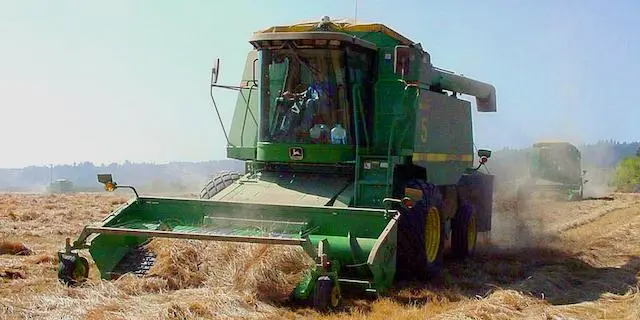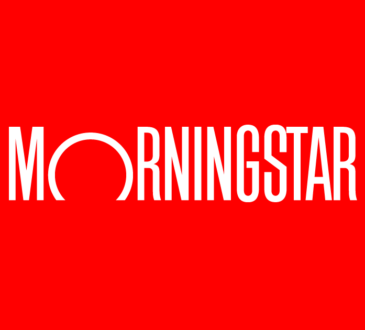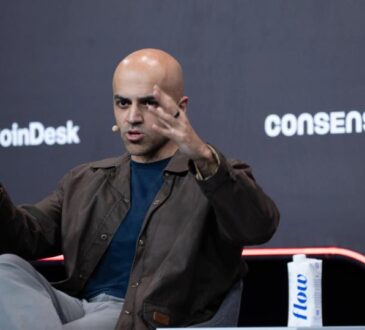
DLF breaks silence in seed price dispute, denies muzzling farmers
Published 7:00 am Saturday, October 11, 2025
The seed dealer DLF has broken its silence on alleged grass seed contract violations, denying it used non-disclosure agreements to stop farmers from discussing alleged underpayments.
Rather, the company asked five farmers who’d filed complaints to sign non-disclosure agreements as part of potential settlement discussions, said Doug Gross, vice president of field production for DLF USA in Albany, Ore.
The company had not previously spoken publicly about allegations it violated grass seed contracts, but Gross recently agreed to answer questions by email.
The company said it did not require more than 50 farmers to sign NDAs before renegotiating their contracts to lower prices for certified tall fescue seed, as recently alleged by the Oregon Grass Seed Bargaining Association, which represents farmers.
DLF did not confirm or deny the underlying claim that it underpaid farmers by 12 cents per pound for tall fescue seed produced in 2024, as alleged in six complaints filed by farmers under Oregon’s “slow pay/no pay” law, which enforces payment terms.
The validity of those “slow pay/no pay” allegations was confirmed by the Oregon Department of Agriculture, which is now involved in enforcement proceedings against the company.
When asked about those specific claims, Gross said DLF cannot comment on the matter “due to the pending administrative process.”
He instead pointed to the difficult market conditions for tall fescue seed, saying that global and U.S. wholesale prices for the crop range from 55-70 cents per pound due to a major surplus.
“The fact is that there is significantly less demand for turf tall fescue grass seed than in previous years,” he said.
The market prices cited by Gross fall below the 80 cents per pound that DLF allegedly paid to growers, as well as the 92 cents per pound negotiated between farmers and seed dealers under a price order validated by ODA for last year’s crop.
DLF has met with ODA and OGSBA several times to offer mutually beneficial solutions but they did not offer any constructive support, he said.
“Despite the tariffs and the changing grass seed market, we’re doing what we can to support the growers now and ensure we’ll be able to continue working with them and investing in Oregon in the future,” Gross said.
DLF has dealt with Oregon farmers for a quarter-century and the company handles more than 10% of the state’s grass seed crop, employing about 150 workers in the state, he said.
Currently, worldwide inventories of turf-type tall fescue seed surpass two or three years of global demand, Gross said. To reduce the surplus, DLF has paid Oregon farmers more than $1 million to avoid harvesting the crop in 2025 and subsequent years, he said.
Of more than 200 farmers that DLF works with in Oregon, most have cooperated with the company to shift their production to grass seed varieties with a higher demand, with only a small number filing complaints, Gross said.
“We cannot change the impact of tariffs and a volatile market. We can only work together to weather the current market changes,” he said.
The company’s perspective on the allegations doesn’t account for the fact that “all the other companies found a way to pay the bargained price that they agreed to,” said Mark Simmons, executive director of OGSBA.
“Why should they be treated special?” Simmons asked.
In highlighting its investment in the Oregon grass seed industry, employment of local workers and other positive traits, DLF appears to be “trying to build some good will for their company,” but its competitors have made similar contributions and face similar challenges, he said.
“And here they are, trying to seek some advantage in the market over the other companies by paying the growers less,” Simmons said.
That sentiment was echoed by Dustin Wilfong, OGSBA’s president and a farmer near Amity, Ore., who said DLF not only made a commitment to farmers, but also to other seed dealers participating in price negotiations.
“It’s been very tough for them to compete in sales/margin when a major competitor has had an automatic price advantage,” Wilfong said in an email. “This whole situation has put more downward pressure and uncertainty on an already struggling market, in my opinion.”
Regarding the extent of DLF’s use of non-disclosure agreements, Simmons said the main point is the company’s motivation for the NDAs rather than the total number of such agreements.
“There’s no way to know for sure unless DLF comes clean and just tells us,” he said. “But the fact of the matter is, why would they want a grower to sign the NDA, if they if they weren’t differentiating between growers and how much they’re being paid?”
As for the allegation that OGSBA and ODA didn’t support DLF’s offer of mutually beneficial resolution, Simmons said his organization agreed to ask for price renegotiations but the request was rejected by some other seed dealers.
“We stepped up, we tried to help resolve this in a constructive manner,” Simmons said “So, I don’t know where they’re getting that no support was offered, because we tried.”
Simmons and Wilfong said that DLF has been a “fair partner” and “ethical player” in the past, but that does not give the company the license to breach contracts when times get tough, which is why it must be held accountable as soon as possible.
“We have to do what we have to do here to defend the legitimacy of the bargaining process and the subsequent pricing order,” Simmons said. “It’s a matter of principle at this point.”
Wilfong said that DLF appears to be “testing the rules and the enforcement of the rules,” so it’s important for state regulators to “reach the correct conclusion on this situation” in an expedient manner, “to deter market and financial damages.”




